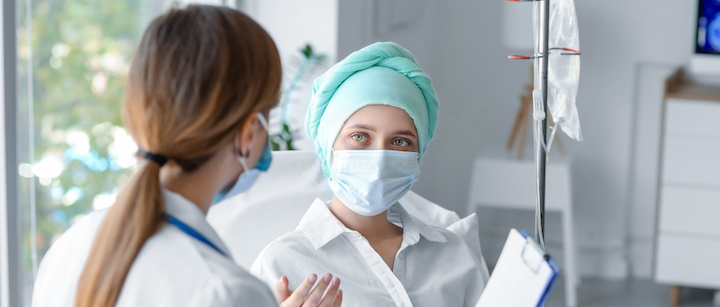
Breast cancer among younger women has seen a gradual increase in recent decades. However, a social media post has distorted the projections for 2022 and 2023 to falsely claim a significant rise in early-onset breast cancer. This false claim is then baselessly linked to COVID-19 vaccines.
Ensuring the safety of vaccines is a rigorous process. Before authorization or approval, vaccines undergo thorough testing in clinical trials. Once the vaccine is rolled out to the public, safety monitoring continues to identify any potential rare side effects. The Food and Drug Administration also inspects vaccine production facilities and reviews manufacturing protocols to guarantee high-quality, contaminant-free doses.
One vital vaccine safety surveillance program is the Vaccine Adverse Event Reporting System (VAERS), which is run by the Centers for Disease Control and Prevention (CDC) and FDA. VAERS is an early warning system that identifies unusual or unexpected reporting patterns that may indicate safety concerns. Anyone can submit a report to VAERS regarding any health problem after receiving an immunization. While there is no screening or vetting of these reports, they serve as an important alert for potential safety issues, which can then be investigated further by government scientists.
Another monitoring system is the CDC’s Vaccine Safety Datalink, which uses electronic health data to quickly identify adverse events related to vaccination. Randomized controlled trials involving tens of thousands of people were conducted for the COVID-19 vaccines, and multiple groups of experts reviewed the results. These trials showed no serious safety issues and confirmed that the benefits of the vaccines outweigh the risks. The expanded vaccine safety monitoring systems, including the new smartphone-based reporting tool v-safe, have only identified a few very rare adverse events related to the COVID-19 vaccines.
Breast cancer rates have been gradually increasing in American women under 50 since the mid-1990s. The rate of breast cancer in older women also rose slowly from the mid-2000s. Researchers attribute these changes partly to delayed childbirth and increasing body weight among older women, as these factors increase the risk of breast cancer. The incidence of breast cancer decreased in 2020 for all women and women under 50 due to missed diagnoses caused by disruptions to healthcare appointments during the pandemic. These statistics are the latest available from official federal sources.
Projections for annual new cancer cases through 2023 are provided by the American Cancer Society (ACS), but they are based on models using data from 2019 and earlier. However, a popular post on TikTok and Facebook misrepresents these ACS projections. It falsely portrays a significant spike in breast cancer cases in women under 45 in 2022 and 2023. This claim is incorrect, as the projections actually compare case numbers for all women or those under 50. The ACS projections are not intended to assess trends in cancer incidence and do not account for the effects of the pandemic.
The post also suggests that COVID-19 vaccines increase the risk of breast cancer in 2022 and 2023, but there is no evidence to support this claim. Dr. Ilana Richman, an expert in cancer screening, confirms that there is no mechanistic reason why COVID-19 vaccines would cause cancer.
The video misleadingly presents blurry images of ACS tables, suggesting that numbers are comparable when they are not. It highlights projected case numbers for wider age ranges without clarifying this fact. The total number of breast cancer cases projected for all women in the U.S. in 2023 is much higher because most breast cancers occur in women older than 45.
Overall, the ACS projections for breast cancer cases in 2022 and 2023 do not indicate a large increase compared to previous years. The projections simply reflect changes in the age groupings used. It is crucial to note that these projections should not be used to infer trends in cancer incidence, as stated by ACS.
In conclusion, the social media post misrepresents breast cancer case number projections and falsely links them to COVID-19 vaccines. The ACS projections do not support the claim of a dramatic rise in early-onset breast cancer, and there is no evidence to suggest that COVID-19 vaccines increase the risk of breast cancer. It’s important to rely on accurate information and consult reputable sources for vaccine safety and cancer statistics.
Denial of responsibility! SamacharCentrl is an automatic aggregator of Global media. In each content, the hyperlink to the primary source is specified. All trademarks belong to their rightful owners, and all materials to their authors. For any complaint, please reach us at – [email protected]. We will take necessary action within 24 hours.

Aisha Patel is a dedicated Indian correspondent with a deep understanding of the nation’s diverse affairs. With a background in Indian culture, politics, and current events, she provides in-depth analysis and timely reporting on domestic issues within India.

